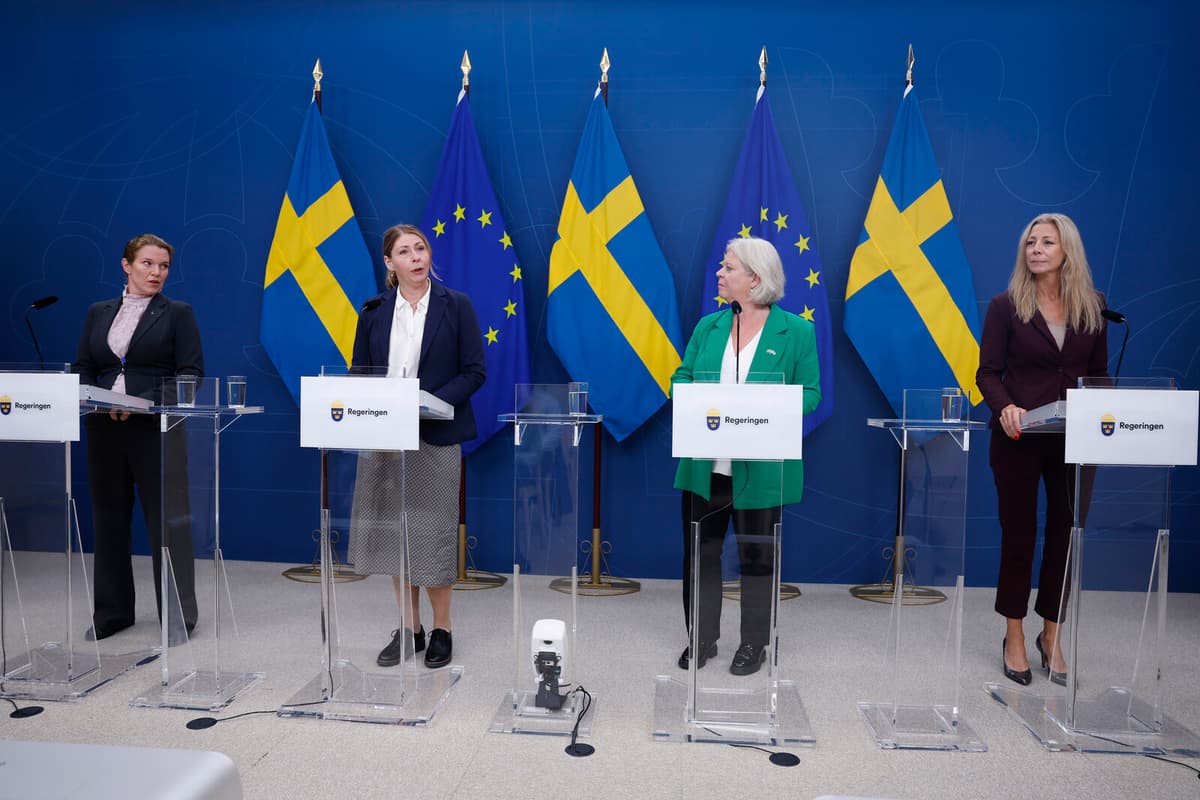The Government is presenting initiatives in healthcare today. In total, it involves 3.5 billion kronor in various areas. A priority is to reduce the healthcare queues.
Swedish healthcare maintains high quality, it enjoys high confidence. The problems are the long waiting times and that accessibility is lacking, says Minister of Health Elisabet Lann at a press conference.
Her party promised in the 2022 election campaign that the healthcare queues would be shortened if The Moderate Party gained power. But the queues are virtually standing still despite the government allocating billions during the term of office to increase capacity.
May have to pay back
To step up the work, the government is providing an additional 1 billion kronor to the regions, linked to new performance requirements. In addition, a national coordinator is being appointed to ensure that the regions' work is carried out efficiently and in a coordinated manner.
If the regions do not meet the set goals, they will become liable for repayment, says Lann.
It's not about just pouring money on the regions, continues the minister.
When asked if The Moderate Party will keep its election promise, she replies that she hopes so.
We have high hopes that this will make a difference.
As a way to shorten the queues, the government has allocated 1 billion kronor in 2025 to increase the number of cataract operations, hip prostheses, and prolapse operations. That initiative is now being extended and for 2026, an additional 750 million kronor is being allocated.
Opposition: Betrayal
The government is also allocating funds for maternal health care, childbirth care, and girls' and women's health. 1 billion kronor is being allocated for that in 2026. Today, that care is a "lottery" depending on where in Sweden you live, according to Lina Nordquist, group leader for The Liberals.
But the government's budget news is not being well received by the opposition, which accuses the government of implementing cutbacks in the healthcare sector. The "initiatives" are in fact cutbacks, according to The Social Democratic Party and The Green Party.
Today's message changes nothing. The fact that healthcare is once again receiving far too little money affects patients and staff throughout the country, says Fredrik Lundh Sammeli, vice chairman of the social committee for The Social Democratic Party.
Performance-based funds for the regions to shorten healthcare queues: 1,000 million kronor (mnkr).
Continued initiative for shorter healthcare queues: 750 mnkr
Agency assignment for shorter healthcare queues: 15 mnkr
National coordinator for shorter healthcare queues: 5 mnkr
National healthcare referral: 125 mnkr
Establish a national digital infrastructure: 262 mnkr
Continued work for better maternal health care and girls' and women's health: 1,000 mnkr
Knowledge support for the implementation of the national plan for childbirth care: 10 mnkr
Strengthened care for victims of sexual violence: 200 mnkr
Reinforced eating disorder care: 100 mnkr
Special education in hospitals: 10 mnkr
Total: 3,477 mnkr
Facts: Government Offices






